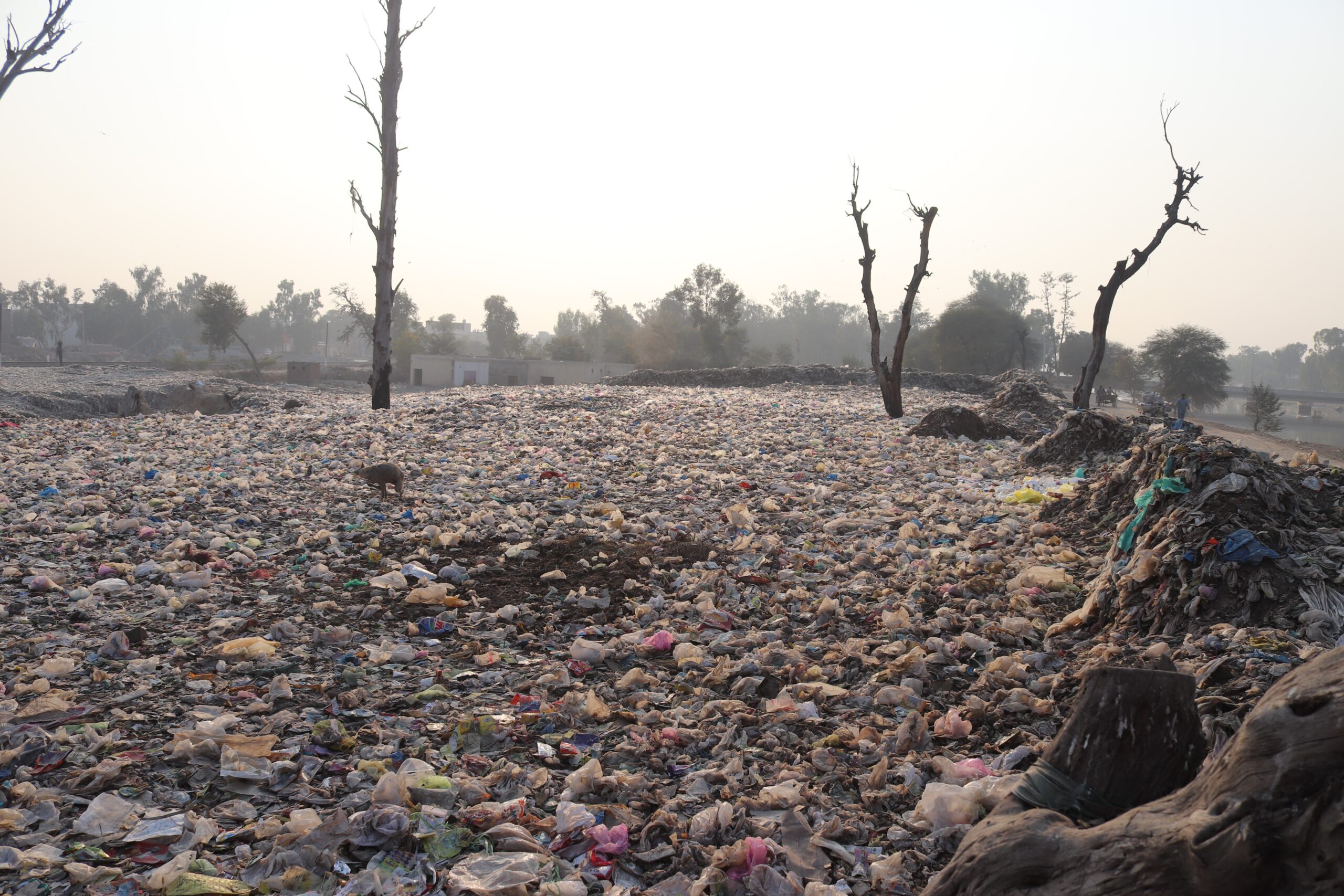
Organic waste, which primarily includes food scraps and yard trimmings, has a significant environmental impact. When this waste is sent to landfills, it undergoes anaerobic decomposition, which releases methane gas into the atmosphere. Methane is a potent greenhouse gas that contributes to global warming and climate change. In fact, it is estimated that organic waste in landfills accounts for approximately 20% of methane emissions worldwide. These emissions not only exacerbate the environmental crisis but also pose a threat to human health, as methane is known to have detrimental effects on respiratory function and can contribute to the formation of ground-level ozone.
Furthermore, the disposal of organic waste in landfills also has negative implications for soil quality. As organic matter decomposes in these anaerobic conditions, it creates leachate, a liquid that contains harmful substances such as heavy metals and pathogens. If this leachate is not properly managed, it can seep into surrounding soil and contaminate water sources, posing a risk to both terrestrial and aquatic ecosystems. Moreover, the loss of organic matter in landfills deprives the soil of valuable nutrients and organic carbon, impairing its ability to support plant growth and promote long-term soil health.
Health risks associated with organic waste
Exposure to organic waste can pose significant health risks to both humans and animals. The decomposition process of organic waste releases various harmful substances such as pathogens, toxins, and allergens. These can cause a range of ailments, from respiratory issues and skin irritations to more severe illnesses like bacterial infections and food poisoning. Additionally, the accumulation of organic waste in landfills and dumpsites creates favorable breeding grounds for disease-carrying vectors like flies, rodents, and mosquitoes, further amplifying the potential for disease transmission.
Furthermore, the improper handling and disposal of organic waste can result in the release of hazardous gases such as ammonia, hydrogen sulfide, and methane into the air. Inhaling these gases can irritate the respiratory system, leading to coughing, shortness of breath, and even long-term lung damage. Furthermore, prolonged exposure to these gases can contribute to the development of chronic respiratory conditions, exacerbating existing respiratory ailments like asthma. Thus, it is crucial to implement proper waste management practices to minimize the health risks associated with organic waste and protect the well-being of both humans and ecosystems.
Effects of organic waste on soil quality
Organic waste, when improperly managed, can have significant impacts on soil quality. One of the main concerns is the contamination of soil with harmful substances. Organic waste, such as certain types of fertilizers, may contain excessive levels of heavy metals, pesticides, and other toxins. When these substances seep into the soil, they can accumulate over time and negatively affect its properties. They can alter the pH balance, disrupt beneficial microbial activity, and impede nutrient absorption by plants.
Furthermore, the decomposition process of organic waste can also have detrimental effects on soil quality. As organic matter breaks down, it undergoes various transformations that release byproducts and gases. These byproducts, if not properly managed, can lead to the formation of anaerobic conditions, causing the soil to become compacted and poorly aerated. In addition, the release of gases, such as methane and carbon dioxide, contributes to greenhouse gas emissions, further exacerbating climate change. These disturbances in soil structure and nutrient availability can hinder plant growth and productivity, ultimately impacting agricultural yields and the overall health of ecosystems.
Organic waste and water contamination
Organic waste, when not properly managed, can pose significant risks to water sources. The decomposition of organic waste releases various pollutants such as nutrients, pathogens, and heavy metals. These pollutants can easily leach into the ground and contaminate groundwater, rivers, and lakes. Nutrient-rich organic waste, in particular, can cause excessive growth of algae and aquatic plants, leading to an imbalance in water ecosystems. Additionally, pathogenic microorganisms present in organic waste can contaminate water, making it unsafe for human consumption and recreational activities. The contamination of water sources by organic waste underscores the need for effective waste management practices to protect our invaluable water resources.
When organic waste enters water bodies, it can also have detrimental effects on aquatic life. The excess nutrients released from decomposing organic waste create an overabundance of food for algae and other plants, triggering a rapid growth known as eutrophication. This uncontrolled growth depletes oxygen levels in the water, causing hypoxia, a condition that is harmful to fish and other aquatic organisms. Furthermore, the introduction of toxins, such as heavy metals, through organic waste can poison fish and other organisms, disrupting the entire aquatic food chain. The consequences of organic waste on water ecosystems are far-reaching and require urgent attention to mitigate its negative impacts on both the environment and the species that rely on healthy water bodies.
The role of organic waste in greenhouse gas emissions
Greenhouse gas emissions are a significant concern in our modern world, as they contribute to global warming and climate change. Organic waste plays a significant role in the release of these harmful gases. When organic waste, such as food scraps and agricultural residues, decomposes in landfills, it produces methane gas. Methane is a potent greenhouse gas, with a warming potential more than 25 times greater than carbon dioxide over a 100-year period. In fact, the decomposition of organic waste in landfills is one of the largest human-generated sources of methane emissions worldwide.
In addition to methane emissions from landfills, the improper management of organic waste in agricultural practices can also contribute to greenhouse gas emissions. When organic waste is not properly composted or used as a nutrient source for soil, it undergoes anaerobic decomposition, leading to the release of methane and nitrous oxide gases. These gases further contribute to the greenhouse effect, trapping heat in the atmosphere and exacerbating the problem of climate change. Thus, it is crucial to implement effective strategies for managing and reducing organic waste to minimize its impact on greenhouse gas emissions.
Negative impacts of organic waste on biodiversity
From the bustling forests to the vibrant oceans, ecosystems around the world rely on a delicate balance of various species. Unfortunately, the presence of organic waste can disrupt this equilibrium and lead to negative impacts on biodiversity. When organic waste accumulates in an area, it can create an environment that is overpowering for certain organisms and detrimental to others. The excessive nutrients released from decomposing waste can change the nutrient ratios in soils and water bodies, favoring the growth of certain species while stifling the survival and reproduction of others. This disruption can lead to a decrease in biodiversity as certain species outcompete or even replace others, causing an imbalance that can have far-reaching consequences for the overall health and resilience of ecosystems.
In addition to altering nutrient ratios, organic waste can also introduce harmful substances into ecosystems, posing further risks to biodiversity. Substances such as heavy metals, pesticides, and pharmaceuticals can leach into the soil or water, affecting the health and reproductive abilities of various organisms. This can lead to a decline in populations or even the complete loss of certain species. Moreover, the introduction of invasive species through organic waste can also have detrimental effects on biodiversity. Invasive species can outcompete native species for resources, disrupt food chains, and alter entire ecosystems in ways that are difficult to reverse. As a result, the negative impacts of organic waste on biodiversity can have long-lasting and cascading effects throughout the natural world.
Challenges in managing organic waste
One of the key challenges in managing organic waste is the lack of proper infrastructure and resources. Many communities and regions struggle to establish effective waste management systems that can handle the sheer volume of organic waste. This can lead to limited options for disposing of organic waste, resulting in it being sent to landfill sites where it contributes to the production of harmful greenhouse gases. Without proper infrastructure in place, the efficient collection, transportation, and treatment of organic waste becomes increasingly difficult.
Additionally, another challenge in managing organic waste is the lack of awareness and education among individuals and businesses. Many people are unaware of the importance of segregating organic waste and the potential benefits it can have on the environment. This often leads to organic waste being mixed with other waste streams, making it harder to manage and recycle. Without proper education and awareness programs in place, it becomes difficult to promote responsible organic waste management practices among the public and businesses, exacerbating the challenges associated with its management.
Organic waste and its contribution to food waste
Food waste is a growing global concern, with millions of tons of edible food being discarded every year. However, what many people might not realize is that organic waste plays a significant role in contributing to this issue. Organic waste refers to any waste material that originates from living organisms, including food scraps, leftovers, and spoiled fruits and vegetables. When these organic wastes are not properly managed and disposed of, they can quickly become a major contributor to the overall food waste problem.
One of the primary ways in which organic waste contributes to food waste is through improper storage and handling. When food waste is not separated from other waste materials, such as plastics or non-organic matter, it becomes contaminated and unfit for consumption. This often leads to entire batches of perfectly edible food being thrown away, simply because they have been mixed with organic waste that cannot be salvaged. Additionally, the presence of organic waste can also accelerate the decomposition process of other food items, further increasing the likelihood of them becoming spoiled and inedible. By addressing the issue of organic waste management, we can significantly reduce the contribution of organic waste to food waste and work towards a more sustainable and efficient food system.
The economic implications of organic waste
Organic waste carries significant economic implications that can affect both businesses and society as a whole. Firstly, the improper management of organic waste can lead to increased costs for businesses. Inefficient waste disposal methods, such as landfilling, require significant financial investments for infrastructure and maintenance. Additionally, if organic waste is not properly treated, it can result in unpleasant odors, attracting pests and negatively impacting the aesthetic appeal of an area. This can be detrimental to businesses relying on tourism or attracting customers, leading to potential revenue losses.
Moreover, the economic implications of organic waste extend beyond the direct costs. When organic waste is not effectively recycled or disposed of, the associated environmental problems can lead to indirect economic consequences. For instance, contaminated soil or water due to organic waste can affect agricultural productivity and water supply, impacting the farming industry and potentially leading to food scarcity. Furthermore, organic waste that ends up in landfills contributes to the emission of methane gas, a potent greenhouse gas that contributes to global warming. The subsequent environmental consequences, such as climate change, can have far-reaching economic impacts, including increased healthcare costs and infrastructure damage.
Sustainable alternatives to managing organic waste
There are various sustainable alternatives available for managing organic waste, which can help minimize its environmental impact. One example is composting, a natural process that involves the decomposition of organic waste into nutrient-rich compost. Composting not only reduces the volume of waste going to landfills but also produces a valuable product that can be used to enrich soil quality and support plant growth. Additionally, anaerobic digestion is another effective method for managing organic waste. This process involves breaking down organic materials in the absence of oxygen, producing biogas as a renewable energy source. The biogas can be utilized for electricity generation or as a replacement for fossil fuels, providing a sustainable energy solution while reducing greenhouse gas emissions. Both composting and anaerobic digestion offer practical and eco-friendly alternatives that can help address the challenges associated with organic waste management.
Another sustainable alternative is vermiculture, or worm composting, which involves the use of specifically bred earthworms to decompose organic waste. The worms consume the waste material and convert it into nutrient-rich castings, a process that not only reduces waste volume but also creates a valuable, organic fertilizer. Vermiculture can be easily implemented on smaller scales, making it suitable for both residential and community use. By adopting these sustainable alternatives, we can divert organic waste from landfills, mitigate environmental pollution, and contribute to a more circular economy that promotes resource conservation and environmental sustainability.

